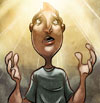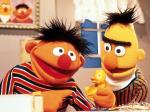The first volume, The Gathering Storm, is a strange beast. It's part history textbook, part memoir from one of the most famous men to have ever lived (at least in the UK). I decided to dive into this thing after becoming slightly obsessed with the second world war after reading Cryptonomicon by Neal Stephenson, and Codebreakers by David Kahn, and realising that the war itself was so much larger than I had ever realised, and too complex to ever really grasp in its entirety. I supposed an ideal place to learn more was from one of the men who not only lived through it, but who played a vital part in winning it.
The first half of this book deals with events following directly on from 1918 and Versailles. It discusses the economic and cultural opposition to Europe ever again fighting such a horrendous war. It discusses why Germany felt she needed to rearm, and why the French, and particularly the British, let her get away with it for so long. Despite all the signs, all the advice from the weary high command, the powers of Europe stood aside and almost welcomed their fate, whimpering and procrastinating while the US remained content to push out their raft and sail away from the rest of the world (although FDR did wave a couple of times on the way out). Once it became inevitable that Germany would outstrip the allies in all the ways that mattered, and it became painfully obvious that she would not be content to let sleeping dogs lie, the rest of this first volume describes the first eight months or so of conflict, the period Chamberlain (I believe) called "the twilight war". Europe stands in stalemate, while both sides clamour to turtle up and stake a major claim to various parts of the globe, particularly Scandinavia. The volume almost charts Churchill's rise from the wilderness at Chartwell, through to his return to the Admiralty, and ends with his almost triumphant arrival at number 10, somewhere around May 1940.
Winston Churchill is perhaps one of the most egotistical men ever. Ever. To read this book is almost like reading a long and detailed list of all the ways he "told you so". From the beginning, Churchill was the (virtually) lone dissenter, the only voice of light in the darkness, the wayward, mis-treated, ignored prophet. Let's just say he is not surprised when the country turns to him in its hour of need.
Of course, you can't really hold a grudge when he says "I told you so", because, well... he did. He was right, and you can never get away from that throughout the read. I had always thought of the second world war as one that had to be fought, as one against terrible, inevitable and aggressive oppression. But by the end, I understood what the man meant when he labelled it "unnecessary". There were so many opportunities from 1918 even up to 1938 where the League of Nations, led by France and Britain, could have made a stand and put an end to Hitler's hungry conquest with little or no conflict. Even when these opportunities arose, the desire for peace at all costs was almost leading Europe into some Greek tragedy--endlessly searching for the one way, the only way, to bring bloodshed back to the fields of France.
What's the book like? Well, I almost feel like I'm not able to judge it. It was written in the late 40s, when all these events and people were still fresh in readers' minds (to say the least!), but I've heard of few of them (I know the big names, of course, but I had no idea who Lord Halifax was, and history is full of men like this). As a result, I often found it to be equal parts obscure and confusing. But this is partly my own fault for not knowing enough about the subject in the first place (I'm sure there are some historians on here who would feel right at home). Unfortunately, the bits I'm most interested in (cryptography and the nuclear programme) are unlikely to be included even in later volumes, as these were still highly classified subjects at the time of publication.
Churchill's style is quite heavy-handed, it has to be said. He is plain spoken but opinionated, and that comes through in every single sentence he writes. He also doesn't shy from facts and figures - there are something like twenty appendices in the book detailing things like aviation strength, letters to obscure European officials, and plenty of tables and maps in the main text itself. He also assumes the reader is knowledgeable of military formations and tactics. I imagine this book was not really written for the public, but probably Churchill's colleagues in the House of Commons. It certainly doesn't seem to cater to the working classes. Churchill mentions the workers quite often, but it seems clear to me that he was never really in touch with them. Britain of the early 20th Century appears to have been a very twee place, where stiff-upper-lippedness was rife. Perhaps this was true, but I'm more inclined to believe an author filter is at work here.
Lastly, and surprisingly, I found that this book gave me a new-found respect for Neville Chamberlain. I was always taught in school that Chamberlain was a pathetic waste of a prime minister--his indecision, his weakness in the face of aggression, and his inability to open his eyes led to the second world war. Well, Churchill paints him as a man who made some mistakes (some bad mistakes), but essentially he was an intelligent, headstrong man who simply wanted peace so badly it clouded his ability to act in time. Chamberlain was certainly not alone in his outlook--much of Europe, even up to 1938, was of a similar view. Churchill appeared to be a fan of his, though I'm not sure how much of this is simply his being the magnanimous successor to Chamberlain's office.
All in all, I enjoyed reading it, but I found it hard going. If you're interested in the subject, and you know a bit or two already, I would definitely recommend it (I think you can get all 6 volumes for something like £30 on Amazon used and new, which is what I did). If the intense details are not to your taste, there's always the abridged version to read (which apparently contains an epilogue covering the 1950s), but I've vowed that if I'm going to read the thing, I'm going to read the whole damn thing!
Places it made me look up on a map: the Baltic states, Trondheim, Scapa Flow, Germany (just kidding

 Help
Help













